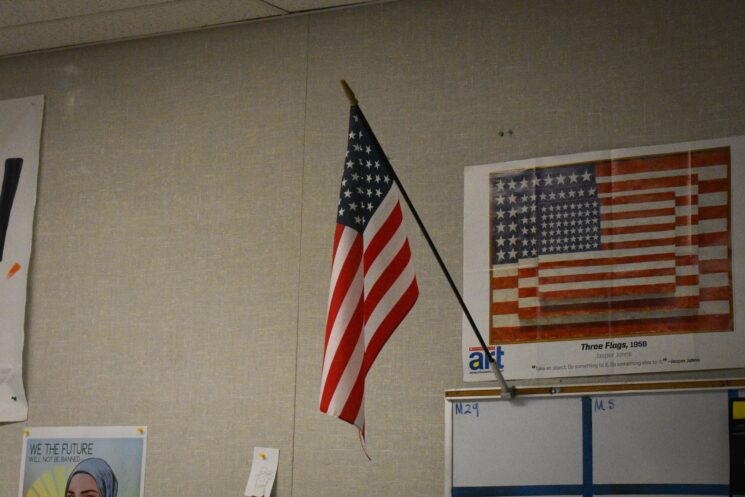
By Shayan Abbasi
Voting and political participation matter. The elections of the next few decades will be decided not by the Trumps and Bidens of the world but by younger demographics. So, what issues do young voters prioritize? Well, a recent poll conducted by Baron Banner with a sample size of 43 students showed that the forthcoming election will likely be a closely contested one. With this survey, key determiners behind a student’s presidential preference were centered around two issues, namely abortion issues and the state of the economy.
Though former President Donald Trump has historically struggled with the youth vote, this was not relayed in our poll. 31% of students reported expressing support for Trump, and another 33% expressed support for incumbent President Joe Biden.
These poll numbers generally follow along with the national polls and are within the margin of error. Though most national polls have Trump ahead by 2-5% points, the election is over nine months away, and the political atmosphere of the nation is susceptible to change as domestic and international developments proceed.
Most notably, 20% of respondents in our poll remained undecided, which shows that many students are still weighing their options. Nationally, the prospect of a potential rematch between Trump and Biden has been met with unpopularity, with both age and unpopular approval ratings dominating the conversation. For reference, President Biden’s current approval rating is at 38.9%, which is the lowest up to this date since former President Harry Truman, when approval rating polls began
Due to this, some feel their views are better represented by alternative options. With entrepreneur Vivek Ramaswamy and Florida Governor Ron DeSantis dropping out of the Republican primaries, only former South Carolina Governor and UN Ambassador Nikki Haley remains as the Republican long-shot alternative to Trump.
On the Democratic side, U.S. Representative Dean Philipps and author Marianne Williamson are waging long-shot campaigns against Biden as well. These challenges are futile, however, with Trump and Biden both maintaining commanding leads over their party opponents. So then, the search for an alternative turns toward the third-party candidates.
Robert F. Kennedy Jr., a notable member of the Kennedy political family and son of the late Senator Robert F. Kennedy, declared his candidacy as an independent candidate on Oct. 9, 2023. Within our poll, 8% of students expressed support for his campaign, which follows national trends and is considered a solid showing for a third-party candidacy. However, a key factor to keep in mind is that third-party candidates generally overperform in the polls early on and start to drop off in support in the lead-up to the election.
This effect was most notably found in the 1992 Presidential Election, where entrepreneur Ross Perot was initially leading against his opponents, then-Governor Bill Clinton and incumbent President George H.W. Bush, in polls conducted the June before the election. As the election cycle continued, however, this trend changed and the voting base shifted towards one of the major party candidates.
Perhaps, the most accurate way in determining voting patterns in presidential elections is then through the most important issues to voters.
Our respondents showed that abortion rights and the state of the economy, along with controlling inflation were the leading concerns, with each attaining 35% of the respondents’ support. This shows that both social and economic issues, including how the economy progresses and abortion referendums are decided, will be motivating factors among the youth vote. Gun safety was also identified as an important concern for 20% of respondents, which shows the growing importance of the safety issue among students.
Overall, the nearly evenly split support for Trump and Biden shows the political polarization that has been observed in recent years, even among high school students, a majority of whom are not legally able to vote. Despite both candidates’ high name recognition, the presence of other candidates such as Haley, DeSantis and Kennedy, shows that a diversity of beliefs and opinions will likely influence this election.
With the election being a mere nine months away, it is more important than ever to involve students in the political process and understand the concerns of the youth electorate, which will be invaluable for years to come.





